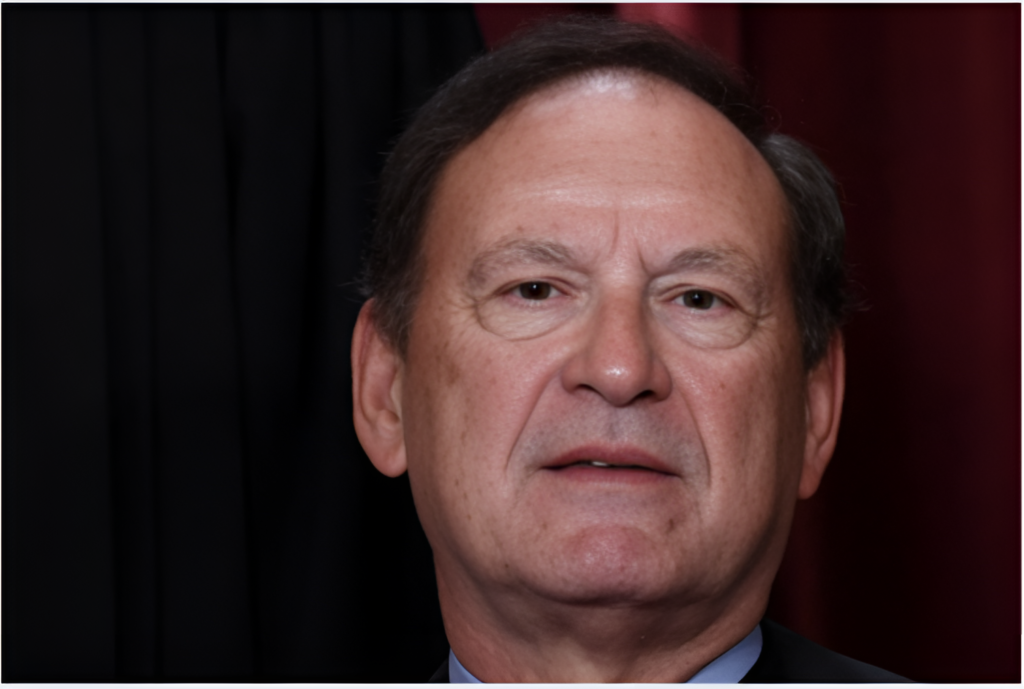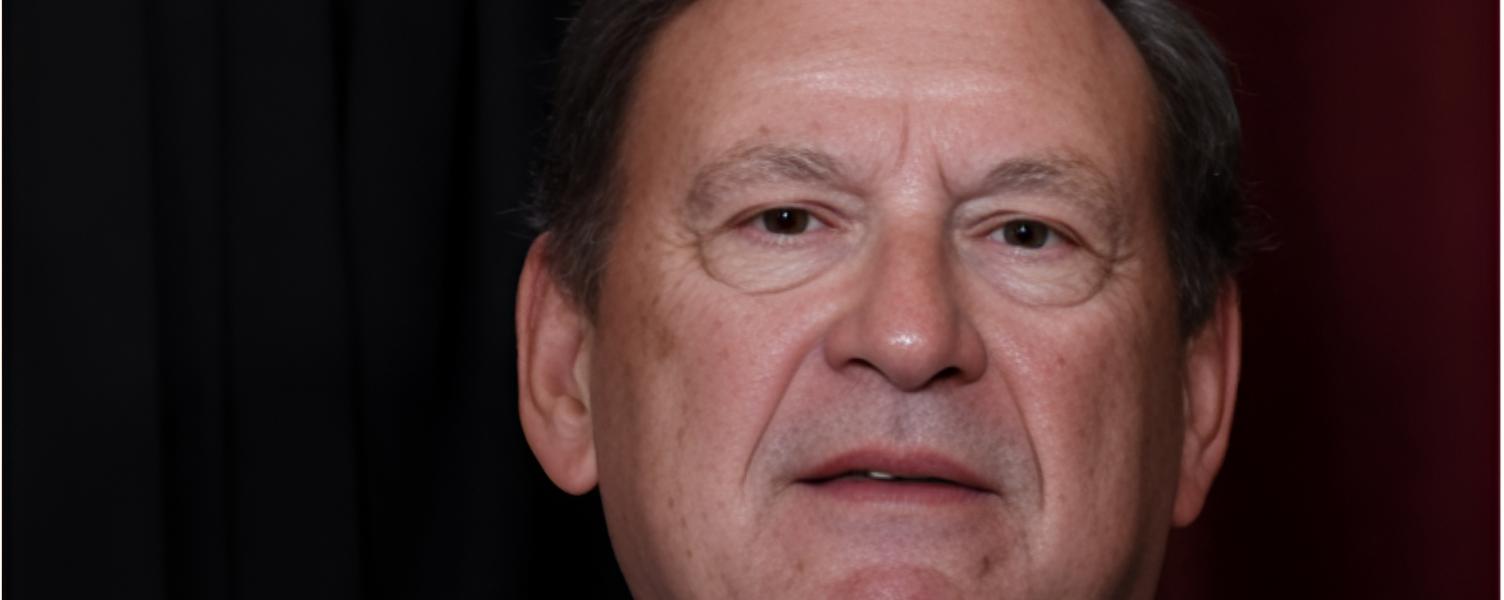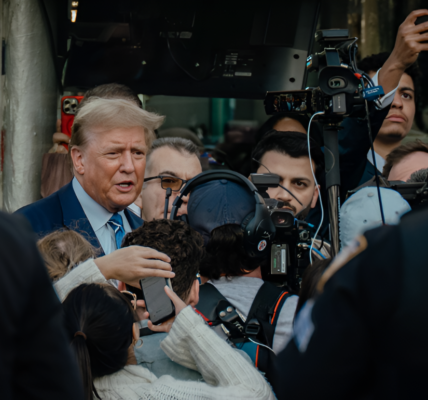
Supreme Court Justice Samuel Alito has long been a polarizing figure. His judicial decisions, like the one overturning Roe v. Wade, have drawn sharp criticism. Beyond his rulings, Alito’s undisclosed luxury trips with conservative donors and allegations of leaking case outcomes have cast a shadow over his tenure. Yet, recent revelations from The New York Times about political flags displayed at his home suggest a deeper, more troubling alignment with partisan ideologies.
The flags—a symbol of Trump’s “Stop the Steal” movement and another associated with Christian nationalism—raise serious concerns about Alito’s impartiality. Displayed during pivotal moments in U.S. history, they have drawn sharp criticism from legal experts and the public. Despite this, Alito refuses to recuse himself from cases related to Trump’s alleged attempts to overturn the 2020 election, a stance that flies in the face of judicial ethics.
Ethical Standards in Question
Alito’s decision not to recuse himself has ignited debates about the ethical standards of the Supreme Court. Judges are expected to avoid even the appearance of bias, particularly on matters likely to come before them. The display of overtly political symbols at his residence contradicts this principle. Alito’s defense—that his wife raised the flags and he had no involvement—rings hollow. As one federal judge put it, “Any judge with reasonable ethical instincts would have realized immediately that flying the flag then and in that way was improper.”
This isn’t the first time Alito has faced ethical scrutiny. His response to criticism has been dismissive, portraying himself and his family as victims. He has also seemingly misled the public, claiming that a neighbor’s hostile behavior prompted the flag display, despite reports indicating the incident occurred weeks after the flags were flown.
A Broken System of Accountability
The Alito scandal highlights the broader issue of accountability—or lack thereof—at the Supreme Court. The court’s newly adopted ethics code, a response to mounting criticism, is unenforceable and has done little to address public skepticism. Justices like Alito and Clarence Thomas have repeatedly demonstrated that they operate with impunity.
Thomas, for instance, has faced similar calls for recusal in cases related to the 2020 election, given his wife’s involvement in efforts to overturn the results. Neither he nor Alito has stepped aside, further eroding trust in the court.
Chief Justice John Roberts has attempted to project an image of reform but has done little to enforce meaningful change. This inaction leaves the court vulnerable to allegations of partisanship and undermines its role as a neutral arbiter of justice.
Democratic Party’s Tepid Response
While the court grapples with an ethics crisis, the Democratic Party has struggled to mount a decisive response. Senate Judiciary Committee Chair Dick Durbin has resisted calls for formal hearings on Alito’s conduct, opting instead for mild requests for recusal. Meanwhile, President Joe Biden has avoided confronting the issue head-on, fearing it might undermine the court’s legitimacy or his own commitment to democratic norms.
This cautious approach has come at a cost. By failing to challenge the court’s ethical breaches, Biden and Democratic leaders have ceded valuable ground to conservatives. Biden’s reluctance to advocate for structural reforms—such as expanding the court or instituting term limits—has left progressives disillusioned and allowed public trust in the judiciary to erode further.
A Crossroads for Biden and the Court
The implications of the court’s current trajectory are significant, not only for the judiciary but for Biden’s presidency. The court has already struck down several of his key initiatives, including his student loan forgiveness program, while also dismantling abortion rights and affirmative action.
The stakes are even higher with Trump’s 2020 election prosecution. A favorable ruling for Trump could allow him to evade accountability, potentially reshaping the 2024 presidential race. Biden’s unwillingness to address the court’s ethical failures could ultimately backfire, threatening his reelection prospects and undermining his policy agenda.
Time for Action
The Alito scandal has crystallized the urgent need for Supreme Court reform. Public trust in the judiciary is at an all-time low, and the court’s integrity is in question. Biden and Democratic leaders must prioritize accountability, transparency, and meaningful reform to restore faith in the nation’s highest court.
If they fail, the consequences will extend far beyond Alito’s conduct, leaving the Supreme Court—and American democracy itself—at a dangerous crossroads.





